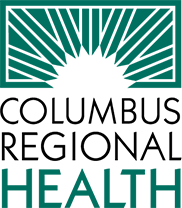Health screenings every man should consider
The list of general health tips we all receive from time to time can be a lengthy one: exercise, get more sleep, get a flu shot, don't drink too much, watch your diet, don’t smoke, watch your cholesterol, wear sunscreen, check your blood pressure…and on, and on.
Although there are many things one can do to stay healthy, let's take a look at an important one that the male population often overlooks -- cancer screenings, also known as, checking your body for a disease before you have symptoms.
Every year, more than 300,000 men in the United States lose their lives to cancer. The most common kinds of cancer among men in the U.S. are skin cancer, prostate cancer, lung cancer, and colorectal (colon) cancer. Learn more about our cancer care services here.
Following are guidelines for the screenings available for detecting the most commons cancers found in men. Add these to your doctor’s recommendations for further screenings or tests based on your own health, family history, and age, and arm yourself with a strong toolkit for health and wellness!
Your Cheat Sheet to Cancer Screenings and Good Health
Colorectal (colon) cancer: Colonoscopy, sigmoidoscopy, or fecal occult blood testing (FOBT)
Guidelines -- If you are 50 to 75 years old, get tested. The schedule depends on the type of test used.
Lung cancer: Low-dose CT scan
Guidelines -- If you are 55 to 80 years old and are a heavy smoker or a past smoker who quit within the last 15 years, get a low-dose CT scan every year.
Prostate cancer: Digital rectal exam (DRE) and prostate specific antigen (PSA) test
Guidelines -- Talk to your doctor. The United States Preventative Services Task Force (USPSTF) recommends against PSA screening for men who do not have symptoms.
Skin cancer: Periodic total-body examinations by a clinician
Guidelines -- Talk to your doctor. The USPSTF has concluded that there is not enough evidence to recommend for or against routine skin cancer screening.
Consult with your physician about when and how often you should be screened. Depending on your personal health history, family health history, or screening results, your doctor may recommend a different screening schedule.
After reading the cheat sheet, you may be wondering why you shouldn’t get screened if a cancer screening test exists. Good question. Some tests have been shown to find both cancer early and to lower the chance of dying from cancer. Others have been shown to find cancer early, but do not lower the risk of dying from cancer. In a nutshell, the benefit of screening doesn’t always outweigh the harms associated with screening.
While these screenings are important, there’s more to your health than just cancer screenings.
Here are some simple things you can do every day to stay healthy:
Maintain a healthy weight
Exercise regularly
Get plenty of rest
Don’t drink alcohol, or limit it to no more than two drinks a day
Don’t smoke
Protect your skin from the sun, and avoid tanning beds
Get a check up every year
Men, someone in your life is depending on you; someone likes having you around, whether its your wife, your partner, your parents, a sibling, your child or even your boss. Take charge or your well-being and stay healthy!

CRH News
-
Final Two CRH Practices Move to NexusPark
Apr 18, 2024, 12:36 PM by DeClue, A.CRH at NexusPark officially opened in late January, and more than 15 provider practices and services have relocated to the space in the first quarter of 2024.Full story -
Wound Center Receives National Awards
Apr 3, 2024, 15:21 PM by DeClue, A.The Wound Center achieved outstanding clinical outcomes for twelve consecutive months, including a patient satisfaction rate higher than 92 percentFull story -
CRH conducting independent public health survey
Mar 26, 2024, 12:41 PM by DeClue, A.Columbus Regional Health is conducting a Health Status Survey by telephone and online from March through May.Full story -
Columbus Regional Health offers new online health portal for expectant parents
Mar 25, 2024, 14:21 PM by DeClue, A.With CRH’s new My Pregnancy Journey, patients can use their computers or mobile devices to review digital prenatal education from a trusted source and track important decisions and tasks that need to happen at specific pregnancy milestones.Full story -
Additional Medical Practices Move to NexusPark
Mar 25, 2024, 11:24 AM by DeClue, A.More practices and services relocate to NexusPark facility.Full story -
Eclipse office hours for CRH-affiliated services
Mar 21, 2024, 14:01 PM by Laker, J.Office hours for CRH-affiliated practices and service lines for the April 8, 2024, Total Solar Eclipse.Full story

